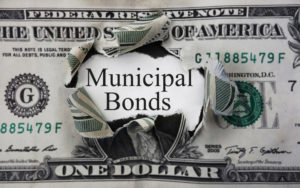
Two reasons municipal bonds don’t belong in your portfolio are underfunded pensions and Wall Street.
In the case of underfunded pensions look at what happened to GM. It was the bondholders who got skewered. When push comes to shove who do you think will get paid first, you or the government employees (pensions)?
And then there’s Wall Street. Tom McGinty and Heather Gillers explain in The Wall Street Journal, writing:
When the West Contra Costa Unified School District in California needed money to repair and upgrade deteriorating classrooms, it hired Piper Jaffray Cos. to sell $191 million of municipal bonds.
As far as school officials knew, the March 2016 sale went off flawlessly, enabling the district to refinance older debt and tackle tasks such as removing asbestos and upgrading science labs.
However, within a day of the initial sale, the original buyers sold, or “flipped,” $35 million of the district’s bonds for a profit of $306,000, a Wall Street Journal analysis of trading in the bonds found.
Within 10 trading days, the post-offering trading had generated $1.24 million of market-adjusted profits. Piper Jaffray participated in some of that trading, buying back bonds and reselling them.
Newly issued municipal bonds, which are marketed as long-term investments, aren’t supposed to trade like that. The post-offering buying and selling suggests West Contra Costa’s bonds—sold in what is called a negotiated offering—were initially underpriced. That means the district will pay more in interest over the life of the bonds than it would if the bonds had been priced closer to what subsequent investors paid.
Read more here.



